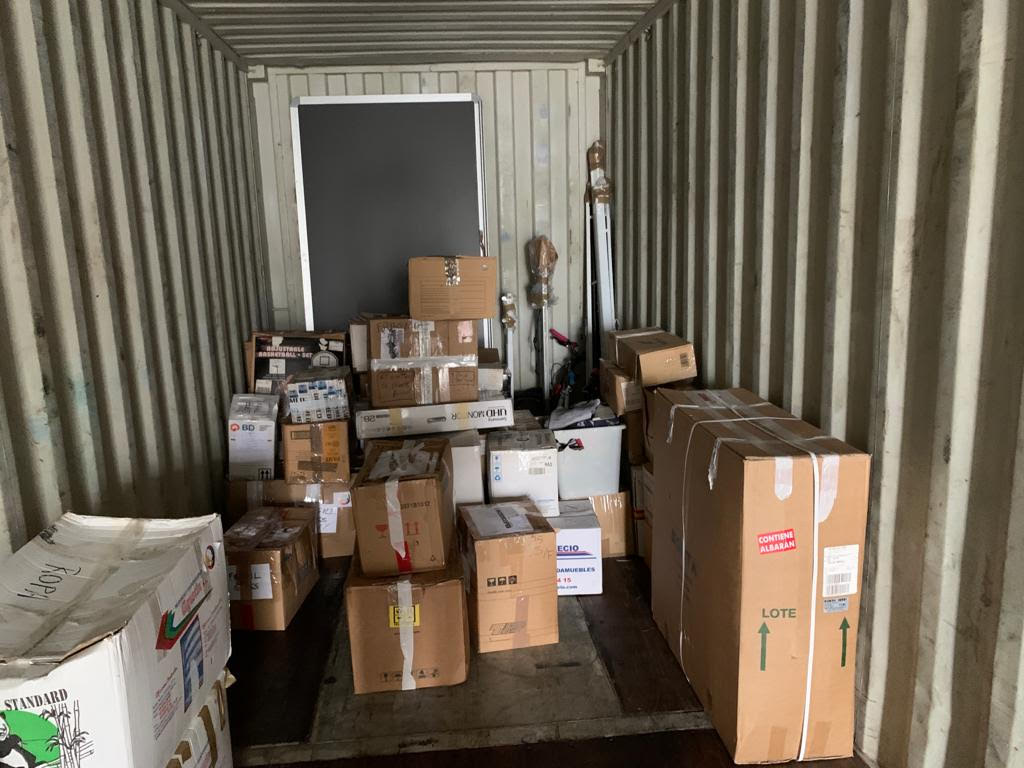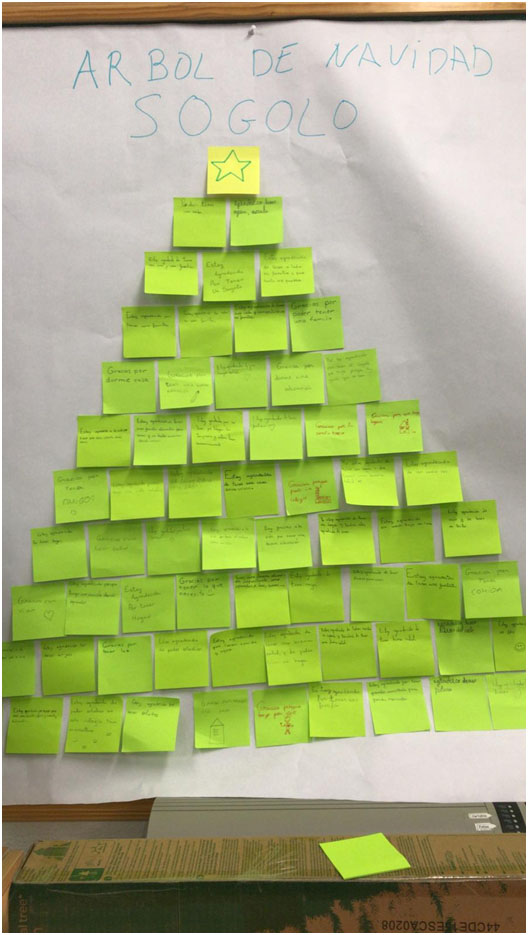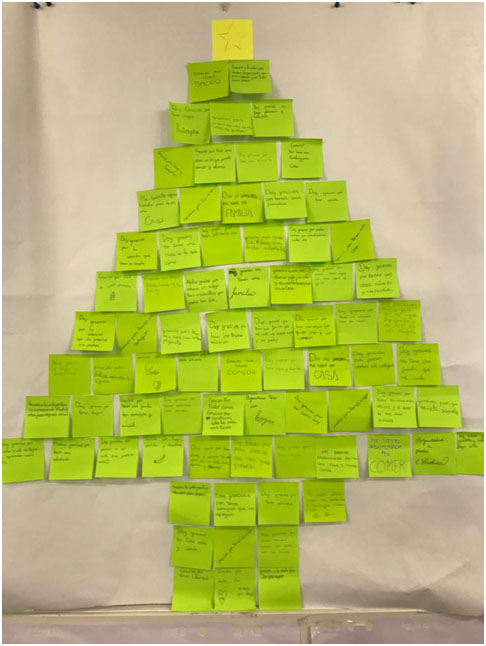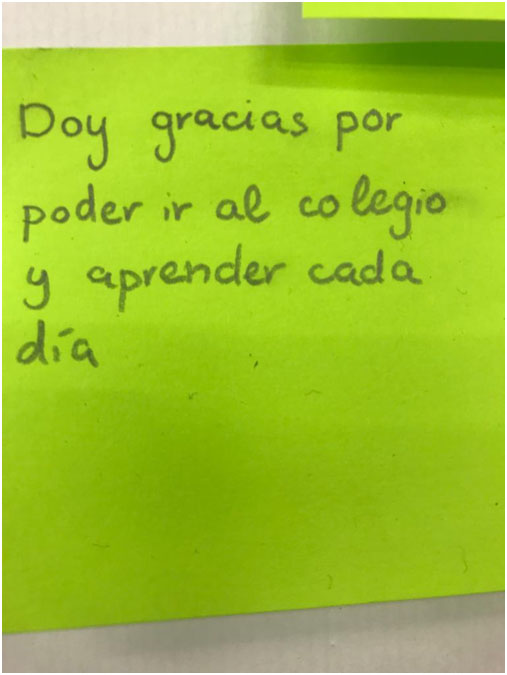THE COMMUNITY OF MADRID AND THE MAJADAHONDA CITY COUNCIL RECOGNIZE THE SOLIDARITY WORK OF RAMÓN DIAZ DE BUSTAMANTE, THE HANDSOF SOGOLO IN ZAMBIA.
Last Monday, November 27th, the recognition of the volunteer work of the Community of Madrid was held at the Canal Foundation. These awards recognize the solidarity work of civil society through the various NGOs in the region. One of these awards went to Mr. RAMÓN DÍAZ DE BUSTAMANTE, founding partner of SOGOLO, an NGO from Majadahonda, Madrid, Spain, dedicated to improving education in Zambia and Spain. He received a detail with his name from the hands of the Councillor of Social Affairs of the Community of Madrid.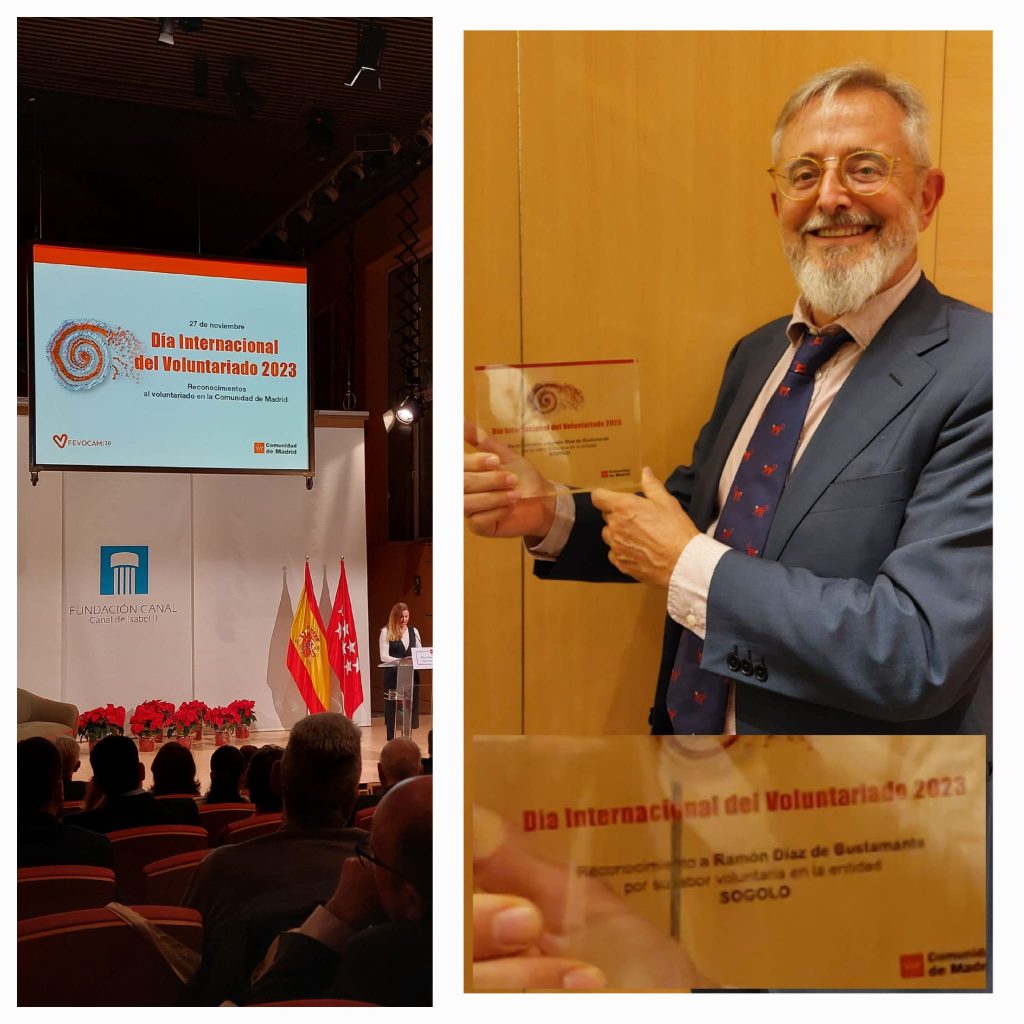

Last Friday, December 1st, the Majadahonda City Council recognized the work of the volunteers of the NGOs in Majadahonda. One of these recognitions was for Mr. RAMON DÍAZ DE BUSTAMANTE, for his invaluable work in collaboration with SOGOLO. All of us who make up the NGO are immensely grateful to Ramon for his selfless work to improve education in Zambia. He goes to the extreme the raison d’être of the NGO: to help through education to improve the future of the people in Spain and in Zambia.
Ramón is the Honorary Consul of Zambia in Spain, as well as a lover of Africa. His work as a businessman is complemented by the dedication of many hours a day to help develop SOGOLO’s projects in an inhospitable region of southeastern Zambia, specifically in the Mwanya region. His work consists of checking the projects we are asked to carry out in the field, assessing their feasibility, and proceeding with their implementation. With concrete, direct action projects, 10 actions have already been carried out in just three years: the purchase of an electric generator to run the computers at Mukasanga School, the construction of a science laboratory with desks and chairs, the repair of windows, walls and a well at Nwanya School, the purchase of a wheelchair for a young girl without legs, the purchase of light bulbs and solar lights, the repair of a classroom roof, the shipment of a container with donated laboratory equipment, computers, screens, blackboard, school and sports equipment, the future construction of a bridge…. These are many projects in a short period of time that involve many hours of negotiations, visits to the areas of execution, e-mails and phone calls.
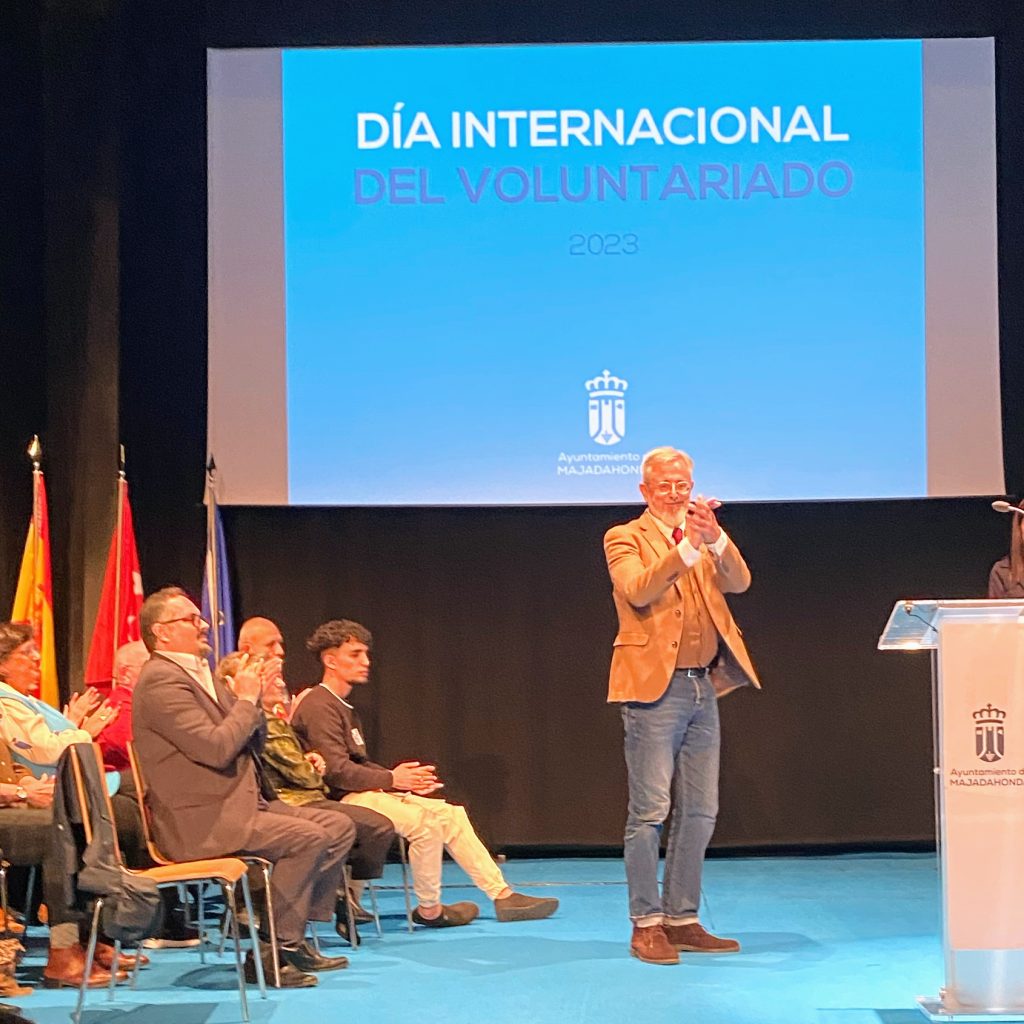 Once Ramon and his team in Zambia, led by Masumba, give the go-ahead to a project that is requested in the region, and after approval by the Queen, the best budget is selected by the Board of Directors and published on iHelp, a crowdfunding platform www.ihelp.org. SOGOLO’s team of volunteers then organizes the publicity and dissemination of the projects. IHelpis in charge of auditing and corroborating the realization of the projects and that the funds go to the intended purpose. Once the money has been raised, iHelp sends the money to SOGOLO’s current account. And from there the amounts are delivered to the Zambian Consulate in Spain, through Ramon, who sends a receipt. And on his return he gives the SOGOLO treasurer the appropriate invoices. All the documentation is sent to iHelp for the traceability of the money and the project with total transparency. Ramon is the key piece of the gear of the aid to the Zambian Educational Community.
Once Ramon and his team in Zambia, led by Masumba, give the go-ahead to a project that is requested in the region, and after approval by the Queen, the best budget is selected by the Board of Directors and published on iHelp, a crowdfunding platform www.ihelp.org. SOGOLO’s team of volunteers then organizes the publicity and dissemination of the projects. IHelpis in charge of auditing and corroborating the realization of the projects and that the funds go to the intended purpose. Once the money has been raised, iHelp sends the money to SOGOLO’s current account. And from there the amounts are delivered to the Zambian Consulate in Spain, through Ramon, who sends a receipt. And on his return he gives the SOGOLO treasurer the appropriate invoices. All the documentation is sent to iHelp for the traceability of the money and the project with total transparency. Ramon is the key piece of the gear of the aid to the Zambian Educational Community.Ramón is an affable, educated, well educated person and a friend of his friends. He lives between his town namedTorrelavega, in Cantabria, and the Safari Explorer camp in South Luangwa National Park. Julia, his indefatigable life companion, accompanies him, together with his dogs Leo and Nina. Ramon is, by nature, a restless person.He has published a book “Diary of Africa” about his experiences in the poorest continent in the world, which he also edits in podcast version. You can listen to them for free here: https://www.africasafari.es/podcast.html. Her voice catches your attention. He has a kind smile and a giant heart. Humble, calm and affable, he is very friendly with his friends and defends the causes he believes in without hesitation.
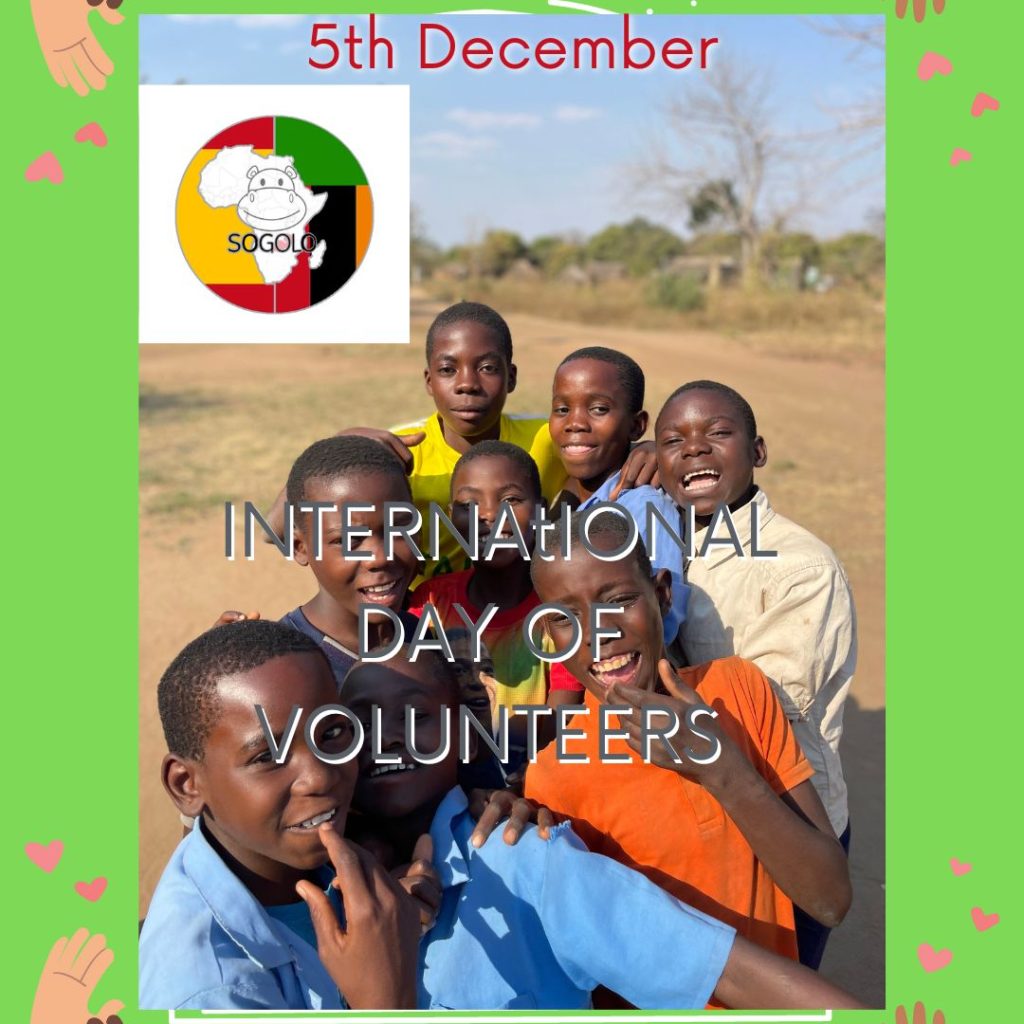
Congratulations Ramon!!! Zicomo Ramón!!Thank you from the bottom of my heart!!!! Many children in Zambia and Spain will be eternally grateful to you.

